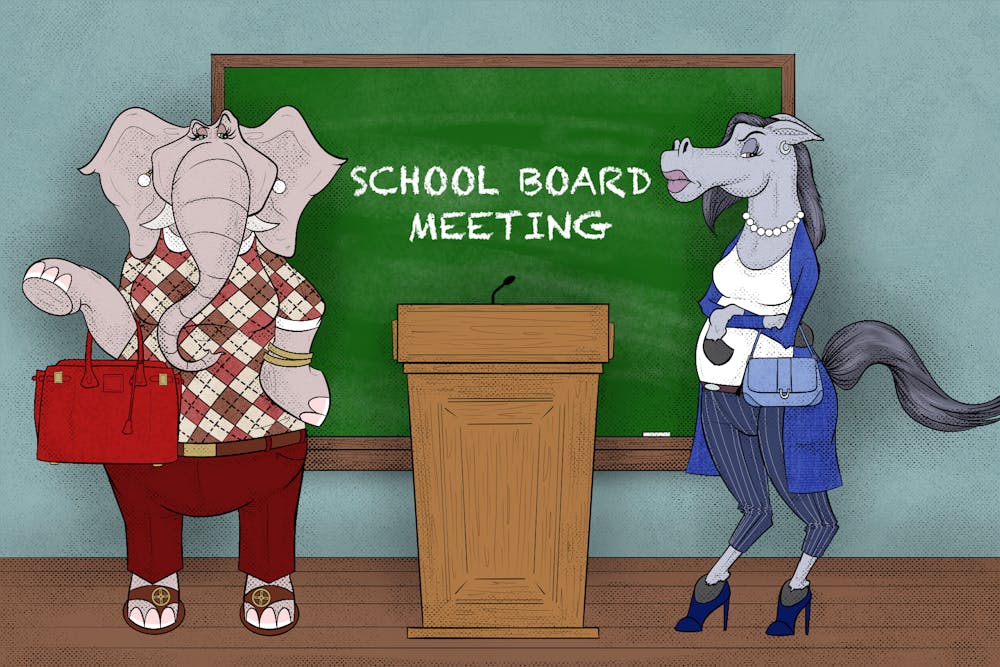In North Carolina, partisan school board elections are on the rise.
A partisan election includes the political party of candidates on the ballot.
More than 50 school boards in the state are partisan or will be by 2024. A recent law passed by the N.C. General Assembly made school board elections in Catawba, Hickory, Newton-Conover and Polk districts partisan, starting next year.
Since achieving majority control in the General Assembly in 2010, Republican lawmakers have gradually shifted the makeup of school boards by filing local bills — legislation that affects fewer than 15 counties and does not require approval from the governor.
School board members establish and maintain policies for schools in their district, as well as hire and collaborate with the district superintendent. They are responsible for setting direction, ensuring accountability and providing community leadership as advocates for schools.
Jeff Taylor, a Catawba County Schools board member eligible for reelection in 2024, has no doubts about running again. Unlike the last time he ran in the predominantly Republican county, his name will be on the ballot with "Democrat" beside it.
"I personally don't feel like the school board should be partisan, but I understand why they did it," Taylor said. "They did it so that the agenda that they want to push can be consistent and so they can get people's votes without people really examining the candidates and looking into the issues."
According to Michael Bitzer, the politics department chair at Catawba College, increased partisanship in school boards stems from polarization — especially within state legislatures — and the inclusion of national issues in local educational debates.
"With super-majorities in the state legislature, Republicans are seeking to align as many offices within their grasp as they can, to ensure partisan politics are apparent when voters cast their ballots for these offices," Bitzer said in an email.



